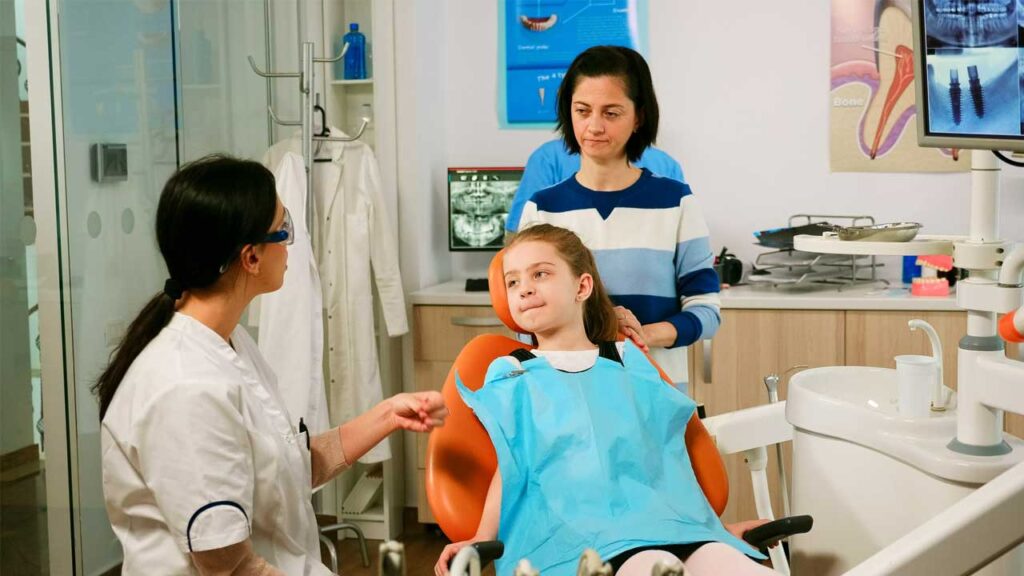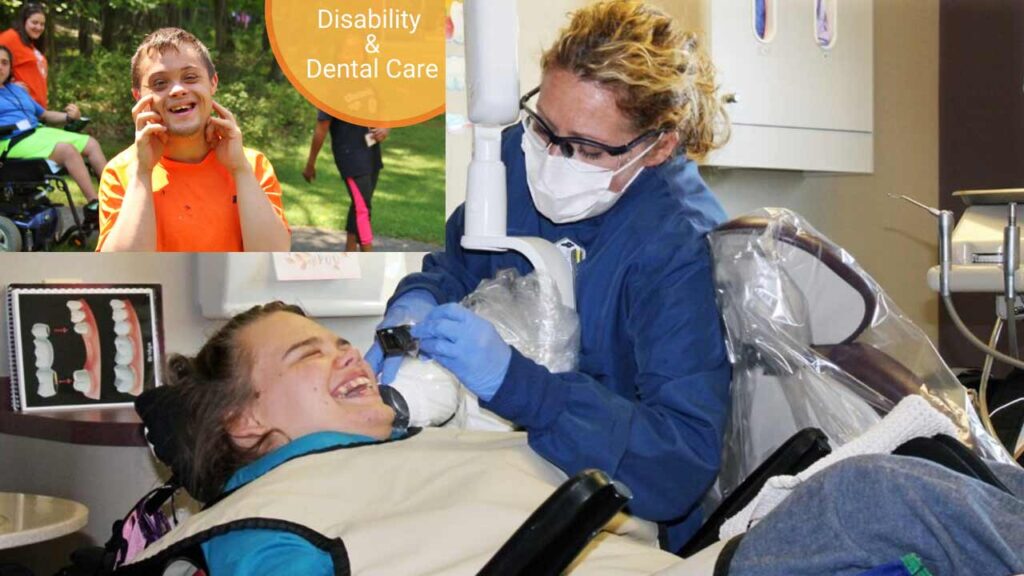Dental care for people with disabilities refers to the dental services and treatments that are designed to meet the unique needs of individuals with physical or cognitive limitations.
Importance of Dental Care for People with Disabilities
Dental care is crucial for everyone, but it is especially important for people with disabilities. They often face unique challenges when it comes to accessing dental care and maintaining oral health, making it even more vital for them to receive the necessary dental services.
Purpose of the Blog
The purpose of this blog is to educate and inform people about the importance of dental care for individuals with disabilities. The blog will explore the challenges faced by people with disabilities in accessing dental care and the various dental care options available to them.
Understanding the Challenges Faced by People with Disabilities in Dental Care

A. Physical Limitations
Physical limitations can make it difficult for people with disabilities to access dental care, as they may not be able to sit comfortably in a dental chair or undergo certain procedures.
B. Access to Dental Facilities
Many dental facilities are not equipped to accommodate people with disabilities, making it difficult for them to receive the necessary dental care.
C. Financial Constraints
The cost of dental care can be a barrier for many people with disabilities, as they may not have the necessary financial resources to pay for the procedures.
D. Fear and Anxiety
People with disabilities may also face fear and anxiety when it comes to dental care, as they may not be familiar with the procedures or equipment used in a dental office.
The Importance of Dental Care for People with Disabilities
A. Oral Health and Overall Health Connection
Dental health is closely linked to overall health, and poor oral health can lead to a number of health problems, including heart disease and stroke. It is crucial for people with disabilities to receive regular dental care to maintain good oral health and prevent these health issues.
B. Improved Quality of Life
Receiving regular dental care can improve the quality of life for people with disabilities, as it can help them to maintain good oral health and prevent oral health problems that can cause pain and discomfort.
C. Prevention of Oral Health Problems
Regular dental care is essential for preventing oral health problems, such as cavities, gum disease, and tooth loss. People with disabilities are at a higher risk for these problems, making it even more important for them to receive regular dental care.
Dental Care Options for People with Disabilities
A. In-Home Dental Care
In-home dental care is an option for people with disabilities who have difficulty accessing dental facilities. A dentist can come to the individual’s home to perform the necessary procedures.
B. Special Needs Dental Clinics
Special needs dental clinics are designed to accommodate individuals with disabilities, and they offer a range of dental services that are specifically designed to meet the needs of people with disabilities.
C. Modified Dental Equipment
Modified dental equipment is available to make dental procedures easier and more comfortable for people with disabilities. This equipment may include modified dental chairs, adjustable lighting, and specialized tools.
D. Sedation Options
Sedation options are available for people with disabilities who experience fear or anxiety during dental procedures. This may include oral sedation, nitrous oxide (laughing gas), or intravenous (IV) sedation.
Making Dental Visits Accessible for People with Disabilities
A. Choosing a Dentist that is Experienced with Special Needs Patients
It is important for people with disabilities to choose a dentist who is experienced in working with special needs patients. This can help ensure that they receive the necessary dental care and that the procedures are performed in a comfortable and safe manner.
B. Planning and Preparing for Dental Visits
Planning and preparing for dental visits can help make the experience more accessible and comfortable for people with disabilities. This may involve scheduling appointments at a time that is convenient for the individual, bringing a caretaker or support person to the appointment, and discussing any concerns or needs beforehand with the dentist.
C. Communicating Needs and Concerns
Communicating needs and concerns with the dentist is essential for ensuring that dental visits are accessible and comfortable for people with disabilities. It is important to discuss any physical or cognitive limitations, as well as any fears or anxieties that the individual may have.
healthcareDental health is an important aspect of overall health and well-being. Take control of your dental health with our top-quality dental health care products. Say goodbye to painful and inconvenient dental issues and hello to a brighter, healthier smile.
These products are designed with the latest technology and are made from premium materials, ensuring that you get the best results. Whether you’re looking for a solution for sensitive teeth, gum health, or just want to keep your smile sparkling, our dental health care products have got you covered.
Tired of hiding your smile due to yellowing, stained, or sensitive teeth?
ProDentim is here to help. This advanced formula whitens and strengthens your teeth, while also reducing sensitivity and promoting oral health. Say goodbye to expensive and painful dental treatments, and start enjoying a bright, confident smile with ProDentim.
Click Here to Try ProDentim now and see the results for yourself!
Struggling with tooth sensitivity, gum problems or bad breath?
Dentitox Pro is the solution you need. This natural, effective formula helps to clean and strengthen your teeth and gums, giving you a brighter, healthier smile. Dentitox Pro is made with the finest ingredients and is free from harmful chemicals, making it safe and gentle for everyday use. Say goodbye to pain and embarrassment, and start enjoying a confident, beautiful smile with Dentitox Pro.
Click Here to Order now and get 20% off your first purchase!
Click Here for Professional Teeth Whitening
Frequently Asked Question (FAQ)
A. Is Dental Care Covered by Insurance for People with Disabilities?
Dental care coverage for people with disabilities varies depending on the individual’s insurance plan. Some insurance plans may cover all or some of the costs of dental care, while others may not cover any costs. It is important to check with the insurance provider to determine what is covered.
B. How Can People with Disabilities Find a Dentist that is Experienced with Special Needs Patients?
People with disabilities can find a dentist that is experienced with special needs patients by asking for recommendations from friends, family, or support groups. They can also search for special needs dental clinics or ask their current dentist if they have experience working with special needs patients.
C. Are There Modifications that Can be Made to a Dental Office to Make it Accessible for People with Disabilities?
Many dental offices can make modifications to their facilities to make them more accessible for people with disabilities. This may include installing ramps, widening doorways, and modifying exam rooms and equipment.
D. What are the Sedation Options for People with Disabilities during Dental Procedures?
The sedation options for people with disabilities during dental procedures include oral sedation, nitrous oxide (laughing gas), and intravenous (IV) sedation. The best option will depend on the individual’s specific needs and concerns.
In conclusion, dental care is crucial for people with disabilities, as they face unique challenges in accessing dental care and maintaining oral health. Regular dental care is essential for maintaining good oral health, preventing oral health problems, and improving overall quality of life.
It is important for people with disabilities to seek out dental care and find accessible options that meet their unique needs and concerns. This may involve finding a dentist who is experienced with special needs patients, choosing a special needs dental clinic, or opting for in-home dental care.
Finally, we encourage people with disabilities to take proactive steps towards improving their oral health, such as regular dental check-ups, brushing and flossing daily, and maintaining a healthy diet. With the right support and resources, people with disabilities can achieve and maintain good oral health.

